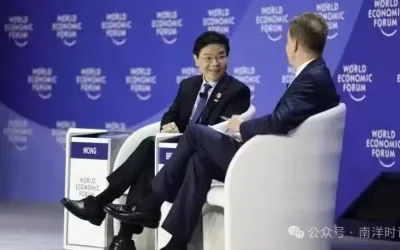For the use of data in terms of the algorithms that many of these companies may want to use, it is important that the data pertaining to individuals is anonymised. And, of course, consent would really be one of those things that we are looking at as well. So, I hope that gives the Member that reassurance that we are doing everything that we can to stay on top of it.
Mr Speaker: Dr Tan Wu Meng, a short one please.
Dr Tan Wu Meng (Jurong): Can I ask the Minister, in his assessment of the current landscape of TAFEP cases on unfair HR practices, roughly what proportion of cases did the adjudication hinge on proof of intention by the hiring manager or the company’s management? Because with AI, it can be difficult to ascertain intention because the AI is not able to give testimony and be cross-examined or provide information for investigation the way a human can be questioned.
Dr Tan See Leng: I thank Dr Tan for his supplementary question. As I have said, we are at a very pivotal state of transformation and the adoption of AI. If we were having a series of discussions earlier on and Dr Tan himself also brought to our attention that, today, you can actually file a legal suit using ChatGPT.
So, what is fundamentally important for us today is to work closely with employees or with potential employees who may feel that they are aggrieved, to surface such cases to us so that we can investigate. Then, obviously, we will work with the companies to see if some of the algorithms – sometimes, it may not be an intention, it could be a function of the datasets that the company is using – have an inherent bias, for instance, in looking at certain characteristics and, therefore, favour hiring or promotion in favour of those characteristics.
So, we need that constant sense of vigilance, we need the participation of all parties coming together. We also need different agencies, the IHRP, the Labour Movement and we need our tripartite partners to come into the space alongside with us. Then we can ensure a more equitable society and workplace for everyone.
Mr Speaker: Mr Pritam Singh.
Mr Pritam Singh (Aljunied): Mr Speaker, just a response to the Minister through a question vis-à-vis what he said about AI. Unfortunately, from the worker’s perspective, one usually is not in a position of information superiority over the employer, so you do not know what back-end selections or pre-qualifications your AI system has done.
So, in that context, where there is always a power imbalance and there is always information asymmetry in favour of an employer, what new approaches would the Ministry of Manpower (MOM) consider to encourage employees to raise concerns to, say, TAFEP or to any other appropriate authority in MOM?
Dr Tan See Leng: I thank the Leader of the Opposition for his question. I think that it is important to recognise that in today’s climate, depending on which aspects that you are looking at, the employee also has certain advantages vis-à-vis choosing the choice of employers that they want to work for, because we do have a very tight labour market. So, it is how we achieve that good balance, of balancing responsible employees who really form the majority of our workforce, alongside responsible employers who are also the majority of our entire job ecosystem, with a very good balance achieved through tripartism – working with the Singapore National Employers』 Federation (SNEF), working with the Labour Movement and also getting other non-government organisations, the IHRP and other organisations which have been working alongside with us. We hope that we can continue to maintain this harmonious ecosystem.
Of course, we cannot take things for granted because we continue to work hard at tripartism, at working with the different chambers to achieve this. But I want to reassure the Leader that every single complaint and every single question is dealt with expeditiously in a very clear and transparent manner. And by building a database, a repository of the nature of the different types of complaints, it would sharpen our ability to protect employees better and, at the same time, maintain that balance for employers.
CF丨翻譯
CF丨編審
新加坡國會丨來源
新加坡國會丨圖源























